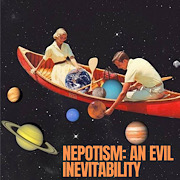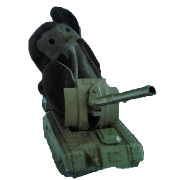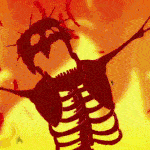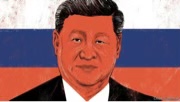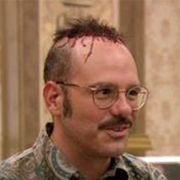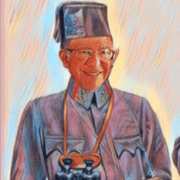|
What caused the bottom to fall out on oil prices during that time?
|
|
|
|

|
| # ? May 12, 2024 02:28 |
|
Punkin Spunkin posted:What caused the bottom to fall out on oil prices during that time? reaction to the 70s shocks, basically. Those two big spikes are the 1973 Arab-Israeli war and the 1979 Iranian Revolution and the associated oil shocks. By the early 80s, Western economies were consuming less oil because prices were high, industrial economies were contracting from high prices, and the combination of economic contraction and energy conservation led to double-digit declines in oil demand in North America, Europe, and Japan. At the same time there was an increase in global supply because of new non-OPEC oil fields coming online in places like Alaska, Siberia, and the North Sea. So a combination of decreased demand because of high prices in the 70s and increasing supply trying to capitalize on high prices in the 70s led to the initial decline in the early 80s. OPEC responded by continually cutting production to try and maintain artificially high prices, but in 1985 Saudi Arabia stopped this policy and resumed full production, which led to the second enormous rapid drop in prices. As far as I can tell from brief research (this isn't my field), the Saudis did that in part because they were tired of other OPEC countries cheating the quotas and partly because they were worried about losing long-term market share to non-OPEC countries that were investing in new oil sources because prices were high and supplies were low, but also partly because they were a Cold War ally of the US and the US wanted low energy prices to boost its own economy and to hurt the Soviets. vyelkin has issued a correction as of 21:47 on Aug 5, 2022 |
|
|
|
it is straight up crazy how much the 70s energy crises impacted the world and how we learned absolutely nothing from it.
|
|
|
|
there’s also the collapse and restoration of the dollars value between 1971 and 1983 contributing to the oil price shifts
|
|
|
|
vyelkin posted:reaction to the 70s shocks, basically. Those two big spikes are the 1973 Arab-Israeli war and the 1979 Iranian Revolution and the associated oil shocks. By the early 80s, Western economies were consuming less oil because prices were high, industrial economies were contracting from high prices, and the combination of economic contraction and energy conservation led to double-digit declines in oil demand in North America, Europe, and Japan. At the same time there was an increase in global supply because of new non-OPEC oil fields coming online in places like Alaska, Siberia, and the North Sea. So a combination of decreased demand because of high prices in the 70s and increasing supply trying to capitalize on high prices in the 70s led to the initial decline in the early 80s. OPEC responded by continually cutting production to try and maintain artificially high prices, but in 1985 Saudi Arabia stopped this policy and resumed full production, which led to the second enormous rapid drop in prices. As far as I can tell from brief research (this isn't my field), the Saudis did that in part because they were tired of other OPEC countries cheating the quotas and partly because they were worried about losing long-term market share to non-OPEC countries that were investing in new oil sources because prices were high and supplies were low, but also partly because they were a Cold War ally of the US and the US wanted low energy prices to boost its own economy and to hurt the Soviets.
|
|
|
|
Calico Heart posted:Any more info/link on this? https://www.mentalfloss.com/article/65467/short-strange-life-mcdonalds-pizza
|
|
|
|
https://twitter.com/gumby4christ/status/1555922303929786369?t=TPsDXH5z-73gP3iyImpuOw&s=19 Extremely yikes
|
|
|
|
https://en.wikipedia.org/wiki/Herero_and_Namaqua_genocidequote:Between 24,000 and 100,000 Hereros, 10,000 Nama and an unknown number of San died in the genocide. The first phase of the genocide was characterised by widespread death from starvation and dehydration, due to the prevention of the Herero from leaving the Namib desert by German forces. Once defeated, thousands of Hereros and Namas were imprisoned in concentration camps, where the majority died of diseases, abuse, and exhaustion quote:On 2 October, Trotha issued a warning to the Herero: https://en.wikipedia.org/wiki/Maji_Maji_Rebellion quote:The Maji Maji Rebellion (German: Maji-Maji-Aufstand, Swahili: Vita vya Maji Maji), was an armed rebellion of Islamic and animist Africans against German colonial rule in German East Africa (modern-day Tanzania). The war was triggered by German Colonial policies designed to force the indigenous population to grow cotton for export. The war lasted from 1905 to 1907, during which 75,000 to 300,000 died, overwhelmingly from famine a force for good where development was encouraged and native governance flourished Cerebral Bore has issued a correction as of 17:21 on Aug 6, 2022 |
|
|
|

|
|
|
|
that's the most facebook meme i've ever read
|
|
|
|
God's very own glowstick caused the wounded soldiers to rave so hard that they invented the binky. Hence it's militaristic name: The Pacifier.
|
|
|
|
I always wonder who will win the international science fair this year.
|
|
|
|
Wasn't it just that the cold meant people didn't bleed to death? Seem to remember a similar situation at Eylau in 1807. That battle started because it was so cold that Prussian and French troops started fighting over who would get to sleep in a house and things escalated from there.
|
|
|
|
No dude it was definitely the glowing angel bacteria
|
|
|
|
there’s no accounts of angels glow from the records of the battle itself and if one digs into the unfortunate child one discovers his mom probably cooked the whole thing up to promote her own research https://news.ycombinator.com/item?id=17591840
|
|
|
|
https://mobile.twitter.com/emeriticus/status/1556302676161355776
|
|
|
|
well actually it was just a French genocide, they let the Anglos off with a warning
|
|
|
|
Poles confirmed black.
|
|
|
|
Tankbuster posted:Poles confirmed black. Didn't Haiti forgive a lot of the Polish settlers? Edit: I'm dumb, they were legionnaires from Napoleon. Not So Fast has issued a correction as of 18:10 on Aug 7, 2022 |
|
|
|
StashAugustine posted:well actually it was just a French genocide, they let the Anglos off with a warning
|
|
|
|
The whole thing is kind of farcical, when you dive into it. Send a bunch of soldiers deeply committed to the idea of national independence, lead by a man of African descent who had personally been racially abused by Napoleon, to quell a slave revolt you claimed was a prisoner revolt. How are they not going to rebel against you or at least become insubordinate?
|
|
|
|
The French imposing a regime of brutal racial subjugation on Haiti: Honhonhon oui!! Putain oui!!! The French having a regime of brutal racial subjugation turned on them: Eh bien ça putain craint. Ce bordel.
|
|
|
|
Eldoop posted:The French imposing a regime of brutal racial subjugation on Haiti: Honhonhon oui!! Putain oui!!!
|
|
|
|
https://mobile.twitter.com/billscher/status/1556447577800933376
|
|
|
|
can anyone make a decent comparative guess as to how gay rights were treated in the united states versus the soviet union in the eighties i tried browsing wiki for it and noted with some suspicion that while the soviet article focuses on legal definitions and number of convictions the american article is about all these social movements as if each of these countries had only one or the other
|
|
|
|
Some Guy TT posted:can anyone make a decent comparative guess as to how gay rights were treated in the united states versus the soviet union in the eighties i tried browsing wiki for it and noted with some suspicion that while the soviet article focuses on legal definitions and number of convictions the american article is about all these social movements as if each of these countries had only one or the other 
|
|
|
|
Some Guy TT posted:can anyone make a decent comparative guess as to how gay rights were treated in the united states versus the soviet union in the eighties i tried browsing wiki for it and noted with some suspicion that while the soviet article focuses on legal definitions and number of convictions the american article is about all these social movements as if each of these countries had only one or the other Part of this is because of the nature of scholarship on it. Scholarship on LGBTQ+ people in the USSR is harder to do because they basically had no visible social movements to leave behind records to study (for example, the USSR's first queer journal wasn't published until December 1989, which is a huge difference from the US). That means a greater reliance on what records do exist, including much more ubiquitous official records like state newspapers or police records. Whereas for a place with a highly visible gay rights movement, like the US, there's a wealth of material to study. Dan Healey, the foremost historian of queer Russia, has a chapter in his recent book Russian Homophobia (2017) about life for gay people in Moscow from 1945 to the 2010s. Here are some excerpts that give a sense of what life was like for gay men in the 70s and 80s: quote:Not everyone could find private space, and sex in public, which had long played a role in straight and queer intimate life in Moscow, continued to assert itself, particularly for gay men. So too did public courtship and socializing, following traditions established in the late nineteenth century.[26] By the 1970s and 1980s, the principal public meeting places for queer men stretched in an arc around the Kremlin and Red Square, producing a celebrated marshrut or “circuit” for the adventurous.[27] An underground toilet in the Alexander Gardens near the Kremlin Wall and just steps from the busy Lenin Library metro station was a notorious place of assignation. Ten minutes’ walk from this public convenience, facilities in GUM department store on Red Square itself, or in the basement of the Central Lenin Museum just off Red Square and directly above the Revolution Square metro, served as the next ports of call. Leaving the museum and crossing Sverdlov Square, one passed a monument of Karl Marx glaring down upon the epicenter of Soviet queerdom: a little garden in front of the Bolshoi Theatre, with its benches facing each other in a circle surrounding a low fountain, forming the northern half of Sverdlov Square. The ensemble was partially shielded from the street by shrubs and gardens. Winter and summer this square – with a plethora of queer nicknames, but commonly known as “the bald patch” or pleshka – was a popular spot for cruising and socializing.[28]
|
|
|
|
https://www.youtube.com/watch?v=MxxxlutsKuI
|
|
|
|
 new my little pony holocaust empath just dropped
|
|
|
|
what is the socialist version of the man in the high castle
|
|
|
|
I watched the Pilot for the television show The Americans recently, and something I saw really gave me pause. From what I know about the Soviet military, women serving with men were, as a matter of policy at least, untouchable. However, the female protagonist of the show is depicted as having been raped by her CO, and later she is told that he had the right to have his way with any of the recruits. This gave me pause. What I want to know is whether or not institutional rape would have been permitted in any branch of the Soviet Armed services in the 70s, let alone the KGB. I understand that it very likely happened frequently, whatever the official policy was, but I was under the impression Soviet doctrine took equality between sexes fairly seriously. That a KGB trainer would be permitted to rape his recruits (implying it was something that was broadly permitted) struck me as off from what I know about women serving in the Red Army in WW2. Is there any good unbiased source I can get on Rape culture in the KGB of that era?
|
|
|
|
https://mobile.twitter.com/AttorneyCrump/status/1557092677551882245
|
|
|
|
The stuff that the French did to the Algerians is genuinely horrifying.
|
|
|
|
Is there a good book about the Soviet war in Afghanistan? How popular were the Mujahedin?
|
|
|
|
AnimeIsTrash posted:Is there a good book about the Soviet war in Afghanistan? Try Gregory Feifer's "The Great Gamble"
|
|
|
|
this picture does not look like what he's talking about those poles are very thin and if these are prisoners they're very poorly secured or trussed up in a frankly inexplicable way. the picture looks more like dummies to me
|
|
|
|
We had this discussion a bit ago and them actually nuking prisoners seems to be an urban legend driven by people seeing that photo and thinking they were real people and not dummies. That isn't to say if something was uncovered tomorrow proving they did it that it would be in any way shocking, just that what is happening there is not what is being claimed.
|
|
|
|
|
V. Illych L. posted:this picture does not look like what he's talking about They’re dummies, if you look at the comments people link to some sources.
|
|
|
|
you’d have to be a dummy to stand there waiting to be nuked like that
|
|
|
|

|
| # ? May 12, 2024 02:28 |
|
they're bicycles
|
|
|




